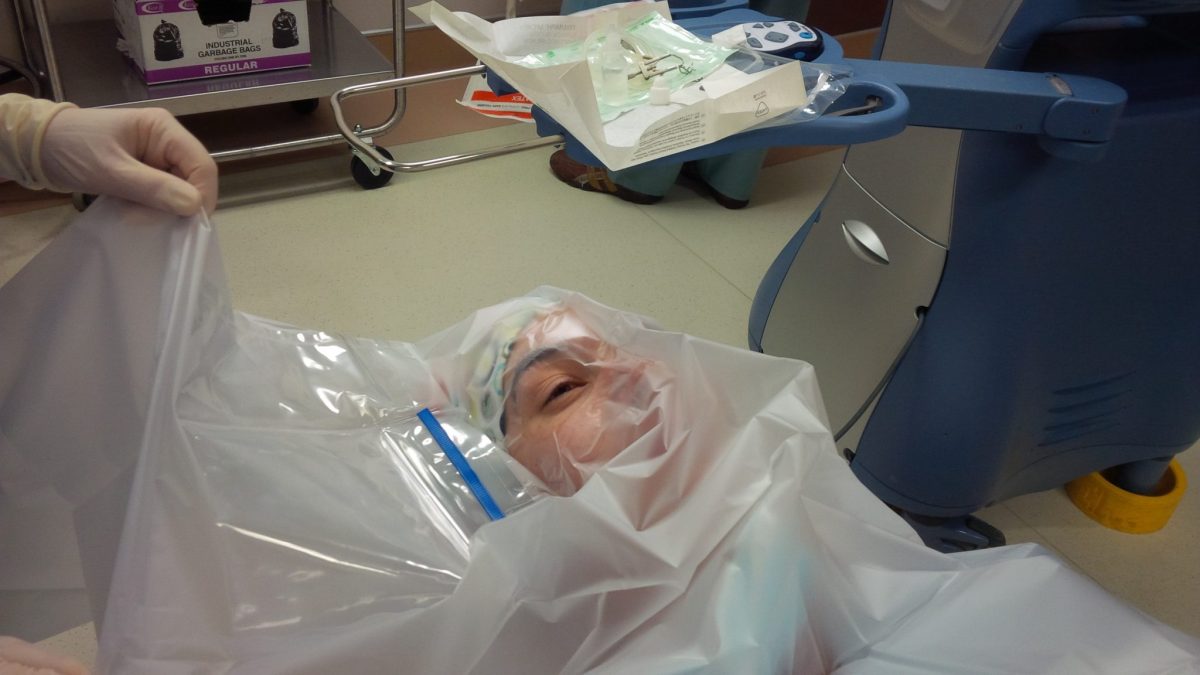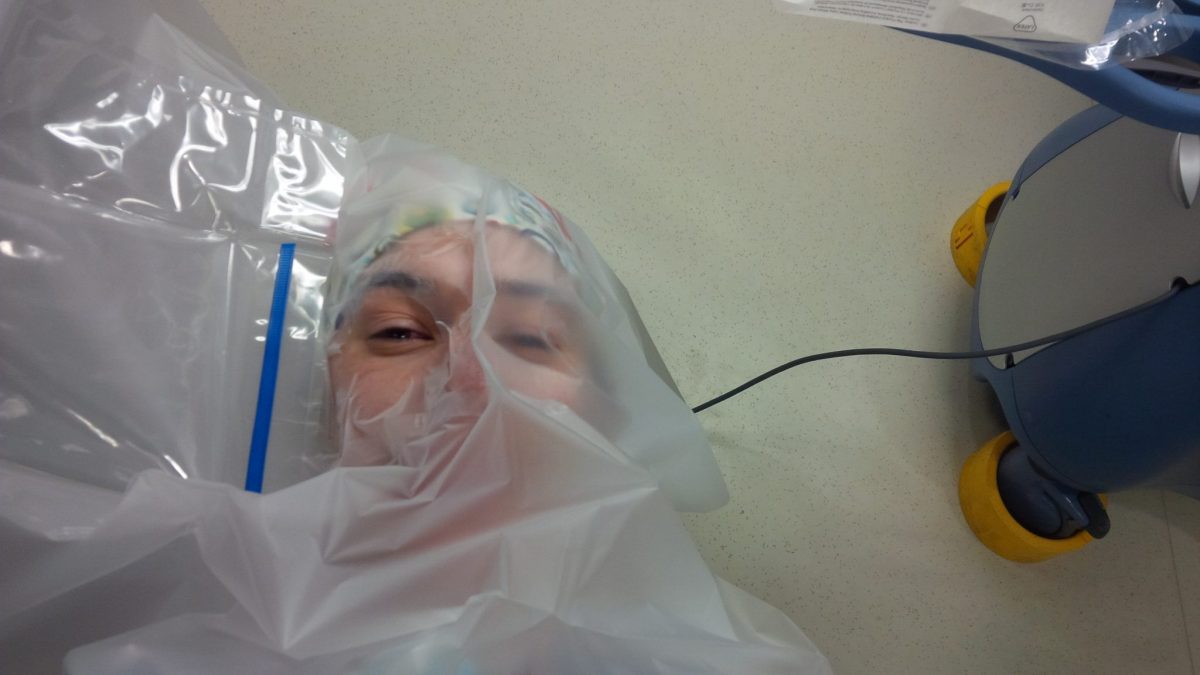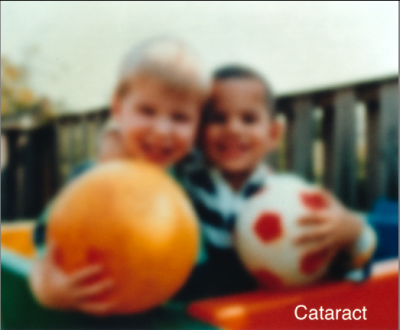What is a cataract?
There is a lens inside the eye which focuses light onto the retina. When we are born, the lens is perfectly clear. Over time, the lens becomes cloudy. When the lens is cloudy enough to affect vision, we call it a cataract.
Cataract Laser Procedures
Most modern cataract surgery is done using an ultrasound to remove the cataract. Laser assisted cataract surgery is not available at the Ivey Eye Institute at this time, but can be done at private centres. Dr. Bursztyn currently performs laser assisted cataract surgery at Laser Vision London, but this is not covered by OHIP.
Capsulotomy
After you have cataract surgery, the cataract will never grow back. However, it is possible for a film to grow on the back of the lens implant, which can make your vision blurry again. If this happens, a laser can be used to clear away the film. This is called a laser capsulotomy.
Capsulotomy takes only a few minutes to do, and most patients have no discomfort during the procedure. The biggest risk of laser capsulotomy is that the lens implant could fall out of place if the procedure is done too soon after cataract surgery. Dr. Bursztyn prefers to wait at least 3 months after cataract surgery to make sure it is safe.
Will I Get a Cataract?
Everyone will eventually get a cataract if they live long enough. Some people get cataracts when they are young, and some people won’t get cataracts until they are 90 or 100. This depends on what time other people in your family got cataracts and also your own personal health. Things like diabetes, steroids, radiation treatment or eye trauma can cause early cataracts.
How do I know I have a cataract?
The only symptom of cataracts is blurred vision. This can include difficulty reading, glare, haloes around lights or dimming of vision. Cataracts do not cause pain or red eye.
Should I have cataract surgery?
There are 2 main reasons to have cataract surgery.
- The most important reason to have surgery is if your vision is bothering you. If you can’t see well enough to do things you like to do, then cataract surgery may help.
- The second reason is if you can’t pass your driving vision test and still want to drive.
If you are happy with your vision, and can still pass the driving vision test, you do not need cataract surgery.
How is cataract surgery done?
Your ophthalmologist will make a small opening in the cornea to reach the lens. The lens sits inside a very thin membrane, which is also opened. The lens is removed by ultrasound, leaving the membrane in place. A new plastic lens is then put inside the membrane. The opening in the cornea will seal itself, usually without any stitches.


What are the risks of cataract surgery?
Cataract surgery is a very safe procedure, and is the most common surgery performed in North America. But with any surgery, there are risks. These include infection, bleeding, retinal detachment, retinal swelling, loss of the lens into the back of the eye and wrong lens power, which means you may still need glasses. Be sure to discuss these risks with your ophthalmologist before having your surgery.
Do I have to pay for cataract surgery?
In Ontario, cataract surgery is 100% covered by OHIP. You do not have to pay any money to have it done. However, there are some extra features that you can pay for if you want to.
Lens Choices
There are many different lens implants that can be used. The standard lens, paid for by the government, is excellent. More expensive lenses can correct astigmatism, block out blue light, and reduce the need for reading glasses. These lenses may not work for everyone, and many people are very happy with the standard lens.
Lens Measurements
There are 2 ways to measure the power of lens needed for your eye. The standard way is with ultrasound, and this is covered by OHIP. The other way is with a laser, which is slightly more accurate, but is not covered by OHIP. At the Ivey Eye Institute, this costs $135. Again, most people have great results with the ultrasound. If you would like to pay for a lens upgrade, you usually need to get the more accurate measurements too.
What can I expect after cataract surgery?
The eye is a little scratchy and sore the day of surgery, but most people are very comfortable by the next day. It is not normal to have a lot of pain, so if you do, you need to see your ophthalmologist right away. You will need to use drops for up to a month after surgery. You will also need to wear a shield to protect the eye while sleeping for one week after surgery. The vision usually improves very quickly after surgery, but it may take a few weeks to heal completely. Unless you buy a special lens, you will need reading glasses. Some people still need a small glasses prescription for distance, but you should wait a minimum of 1 month before getting your glasses checked.
Private Cataract Surgery
at Laser Vision London
Dr. Bursztyn operates at both at the Ivey Eye Institute in St. Joseph’s Hospital London, where she does OHIP covered cataract surgery as well as at Laser Vision London, where she offers laser assisted cataract surgery with premium lens options. These options can reduce or eliminate your need for glasses after cataract surgery, but are not covered by OHIP. The cost of having surgery at Laser Vision London ranges from $1750 to $4000 per eye depending on what options you choose. If you are interested in learning more your optometrist can refer you for a free consultation at Laser Vision London. After the consultation, there would be no obligation to proceed with premium cataract surgery if you do not find an option that suits your needs. You can also call 519-204-7777 or 1-877-417-2020 or email [email protected] to learn more.

